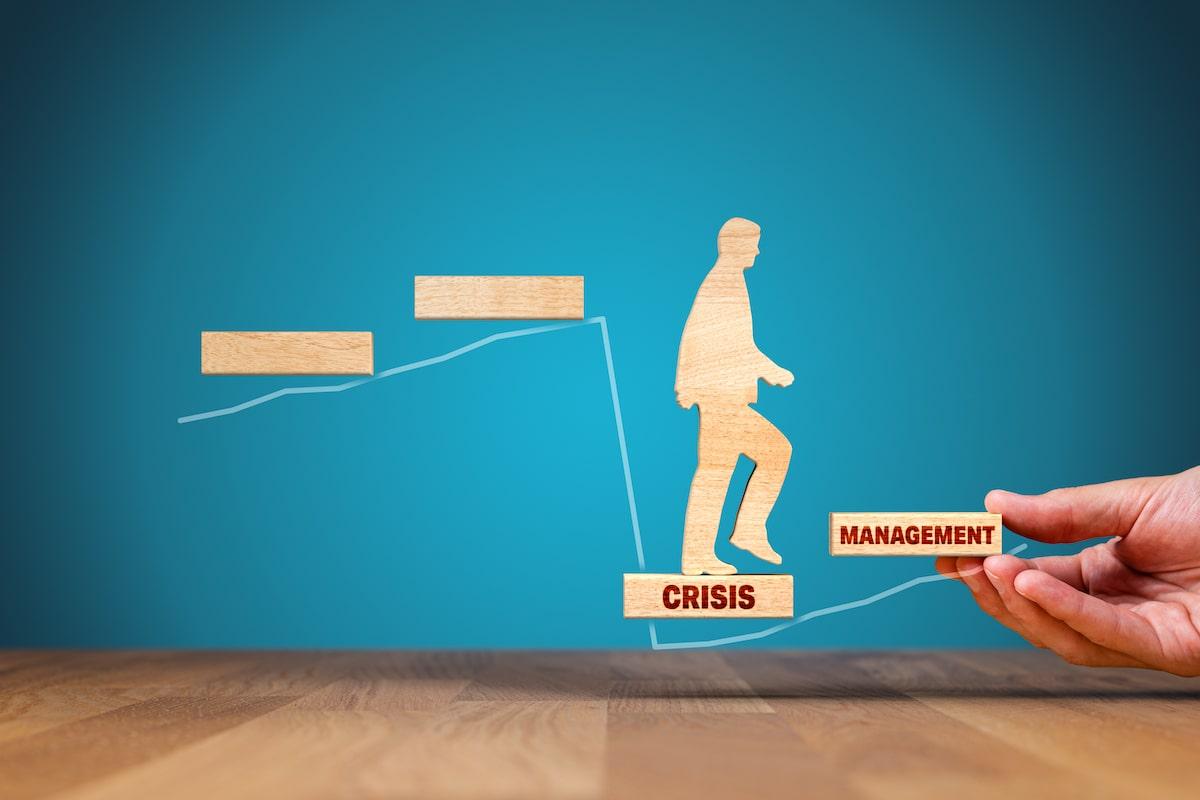Crisis Management: How to Handle A Crisis Like A Pro – Part Two: Crisis Response
By Michael Kunert,
Political Strategist
We discussed the categories of a “crisis.” We pointed out the benefits of pre-crisis planning with your campaign staff and things to avoid during your planning and decision-making process. We talked about “what if” scenarios and how you can train your brain to respond during a crisis. We discussed how to develop contingencies and mitigation efforts should a “what if” moment actually occurs. And lastly, we talked about the importance of knowing who the spokesperson is and the importance of their role during a crisis.
Today, we are going to discuss about crisis management and what happens when a major incident or unplanned event occurs; when it is or has just “hit the fan,” and you’re in the middle of the storm. Now for clarity, we are not going to discuss a life-threatening crisis (e.g., a natural disaster that causes loss of life to your team) because that is a complete set of measures outside the scope of this article. However, some of what we will discuss can be applied in the lead-up and aftermath of a natural disaster.
Phase 2 – Crisis Management and Response
Take a moment to think about the worst thing you’ve ever been through. Maybe it was a divorce. Maybe it was the death of a close friend or family member. Maybe you went through a natural disaster. Maybe your business suffered during the pandemic. We’ve all dealt with something tragic in our personal lives. Some of us got through it with a small network of family and friends. Some of us got through them because it was our job to keep others safe during a tragic event. Whatever your crisis was, hold on to that memory for a moment.
Now I want you to imagine that as you’re going through that crisis, your community and community leaders, your family and friends, business leaders, the media, and your opponent, are all calling on you to be the expert to get them through that crisis. Imagine the amount of pressure that has just been placed squarely on your shoulders.
Hopefully, you read Part 1 of this topic and thought through what could go wrong and how your political consulting campaign would respond if it did.
But now that you’re going through it, here are some tips to follow:
- Do NOT avoid the situation – avoiding it won’t make it go away and will only make your campaign seem weak and inept.
- Make sure everyone knows their role – during a crisis, everyone needs to know what their role/responsibility is or are. This will help people stay grounded and focused.
- Have one message and stay on that message – VERY CRITICAL. All communication needs to come from one source, and if a message is delivered, everyone is to stay on that message until told otherwise
- Do NOT avoid the media – The more you hide, the more they are going to look and the more they are going to suspect.
Do Not Avoid the Crisis
People elect leaders. People elect those whom they believe will make their life better. People elect candidates whom they will believe will fight for them. They do not elect people who avoid confrontation. And they do not elect people who run when the pressure is on. Political consulting is needful to know that avoiding a crisis does not make it go away. When a crisis comes, you must take it head-on and manage it properly.
During the pandemic, many candidates stayed inside their homes or offices. Our client was trying to unseat a well-established incumbent. We shot videos of our client exercising outside, taking food to the elderly, patronizing businesses in her community, and giving masks to first responders.
Our goal – and we were successful – was to portray our candidate as strong and vibrant when everyone talked about the virus’s uncertainty. We wanted to show the voters that she was not afraid to help her community during this tragic time because that’s what leaders do.
In other words, we had no control over the crisis, so we did not avoid it.
There is a saying, “never let a crisis go to waste.” I agree that if you can use a crisis to your advantage in an ethical and elegant manner, demonstrating your leadership, you should. But I personally don’t care for those who politicize death to further their political agenda.
But let’s talk about an attack on the campaign weeks before the election. Let’s say your opponent drops some scathing information or details that, if not handled correctly, could implode your campaign, and the media is chomping at the bit to get all the juicy details.
Again, avoiding it won’t make the phones stop ringing or make the media leave you alone. Leaders will assess the damage and will prepare their response.
Make Sure Everyone Knows Their Role
Your campaign has been attacked. Your opponent is going into their war chest and bringing out the big guns. Now is not the time to panic. Remember, panicking is contagious. If you run a political consulting firm oy you are a campaign manager, and candidate, your team will follow if you lose your cool.
That’s why when a crisis occurs, you want everything and everyone to slow down. Now is when everyone needs to be calm because being calm is contagious too.
The best way to keep people calm is to give them clear directions on what their role is and what their responsibilities are. During a crisis, this will help them stay grounded and focused as well as help them feel like they are a part of the team.
Not only should they know what their role is but they should know what everyone else’s role is as well. Who is calling the shots? Who is the spokesperson? Who’s managing the volunteers? Who is responsible for getting everyone back to campaign headquarters? When the media calls, to whom are they transferred? If a donor calls, to whom are they transferred?
In the middle of the storm is the last place you want to be trying to figure out the most basic tasks like, Who’s job is it to…?
And in the middle of the crisis, one of the most important people you will have on your team – so you should choose them wisely – is our Communications Director/Spokesperson. This is the person who is going to help you navigate the rough waters of the media to help you to port.
Everyone on your team needs to know who the Communications Director/Spokesperson is, and any and all communication needs to run through that person. When a crisis occurs, there should be one message coming from the campaign, and everyone should stay on that message until there is a change from the Communications Director.
Have One Message and Stay on Message
During a crisis, emotions will be high, and there will be a desire to react to whatever damage has been done. Know that no great achievements in life were the result of someone who panicked. A good communications director should have a sense of the community and should be competent at assessing the damage leveled by the crisis.
Consulting with the candidate, the campaign manager, and possibly the campaign strategist and/or consultant, they will be able to craft a proper, effective, and measured response or message to the media and the community as a whole.
When delivering a message, take responsibility and own it if you need to own a mistake. Be authentic. Explain what went wrong and how it will be corrected. Say what needs to be said, and then be quiet. Too often, during a crisis, we feel the need to over-explain. Adding anything more to what needs to be said opens the door for more questions and scrutiny.
Finally, and it should go without saying, no one other than the Communications Director should be notifying the media or releasing any statements on behalf of the campaign or on their personal social media accounts.
Do Not Avoid the Media
With the state of the media today, it’s understandable why people will shy away from the media. But during a crisis, this could be a terrible misstep. Some very good reporters and journalists want to get information out to their readers or viewers. Establishing a good rapport with the media early on in your campaign will help smooth matters should a crisis occur. This is one of the main things to take note of during crisis management
Avoiding the media gives the impression the campaign is hiding something and not being completely transparent. Your silence will only amplify the crisis. Again, an experienced Communications Director will know how to deal with undesirable media attention.
So, that’s all for this week. Remember, when a crisis occurs, don’t try to avoid it. Just slow down, stay calm, and stay focused. Rally your team and remind them of their roles and responsibilities. Meet with the Communications Director and discuss possible options for responding. Remember, you want to respond, not react. Develop a message and stay on that message until it’s time to change. And lastly, do not avoid the media. Avoiding the media will only bring further scrutiny.
Next, we will discuss what you should do post-crisis to learn and improve your team for the next crisis.





